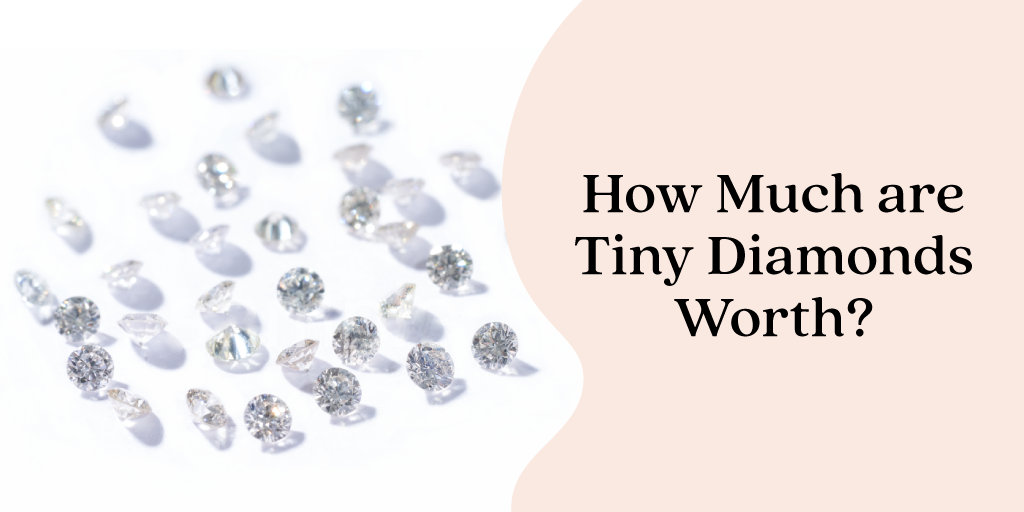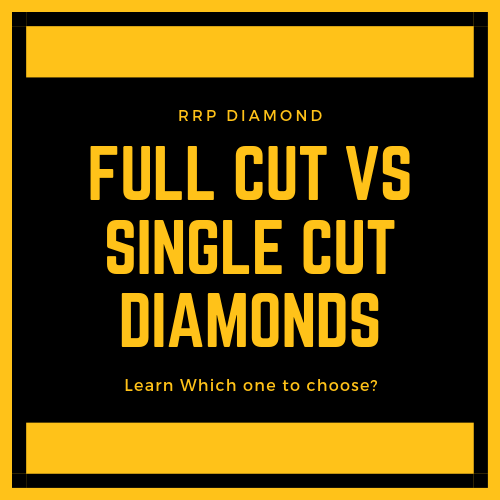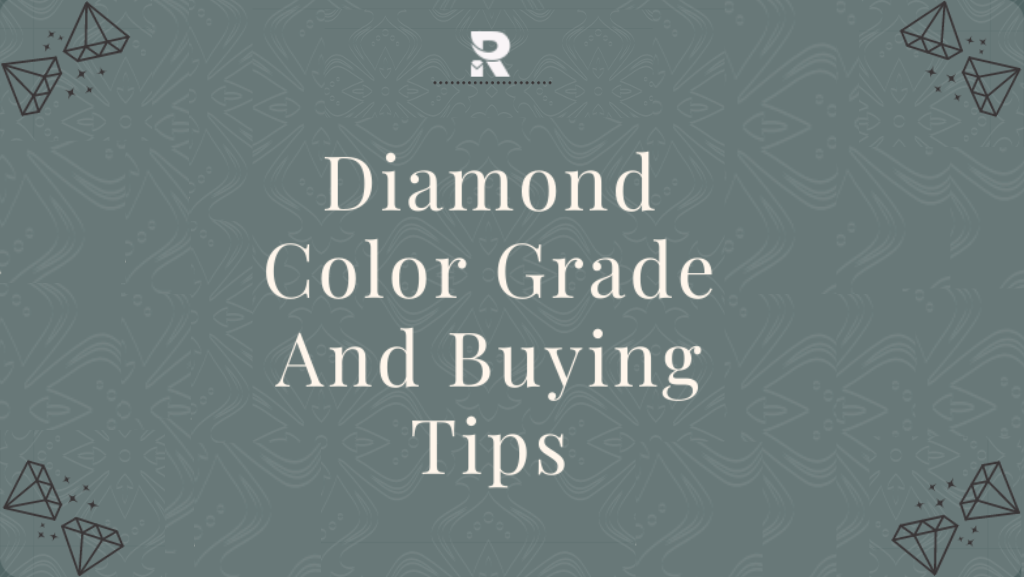
Navigating the world of diamonds involves understanding the intricate details of diamond color grading. The Gemological Institute of America (GIA) has carefully crafted a color scale, ranging from D to Z, to guide buyers in selecting diamonds based on their color purity.
Let’s embark on a journey through this spectrum, uncovering the features of each grade and delving into the significance of color in the world of these precious gems.
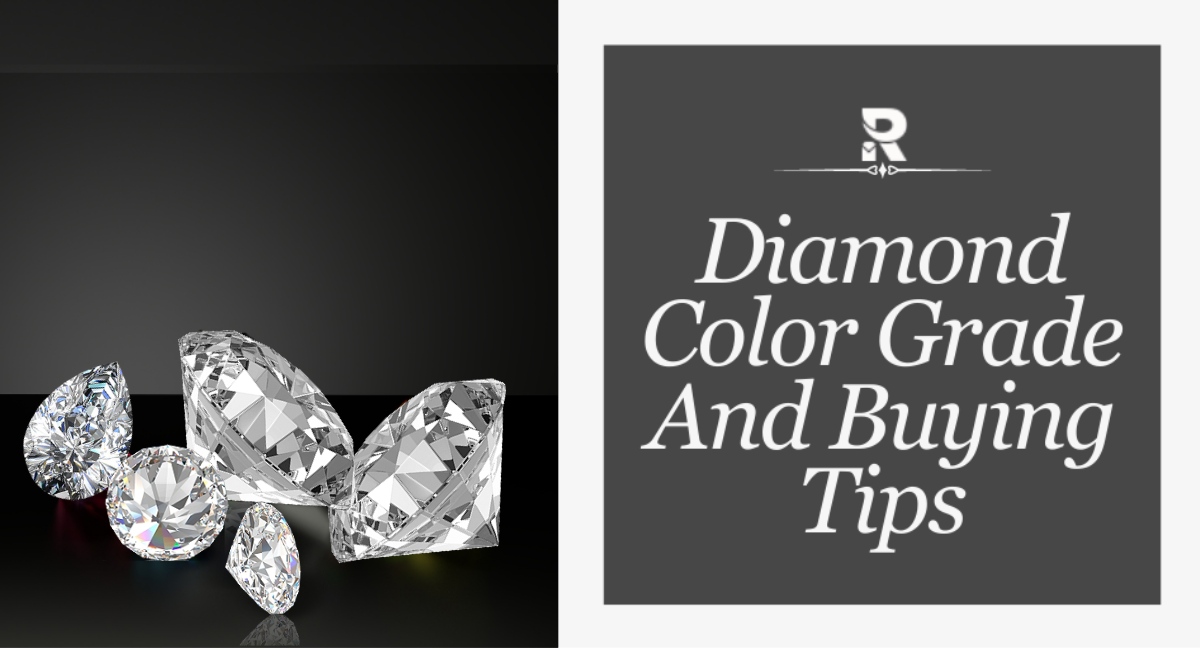
What is the Diamond Color Grading Scale of GIA?
Well to break it down to you, GIA made this scale to ensure that buyers and sellers would understand as to which diamond is actually worth spending your money on and which one is not. When it comes to diamonds, color is a crucial component that can greatly affect the precious gem’s worth and beauty.
Diamonds are categorized according to their color using a color scale developed by the Gemological Institute of America (GIA), which runs from D to Z. Let us explain in detail the different color grades.
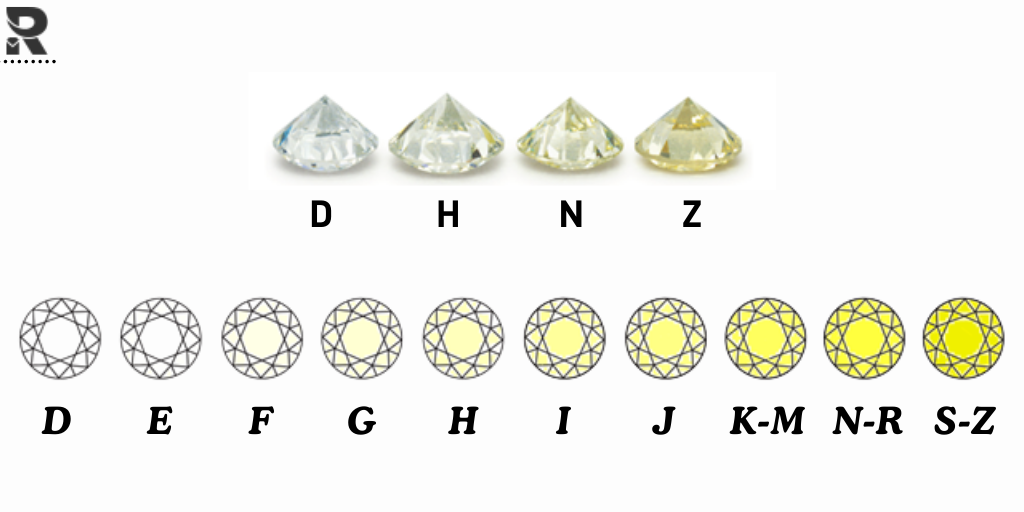
1. Diamond Color D – Absolute Pure Colorless: The ultimate in perfection, D color diamonds are the highest grade available on the GIA diamond color chart. These rare diamonds seem completely flawless to the unaided eye and when magnified, they are practically colorless. Due to their remarkable rarity and flawless beauty, D color diamonds are usually set in platinum or white gold, and are highly valued.
2. Diamond Color E – Perfectly Clear Colorless: E color diamonds have almost undetectable color, matching D color counterparts in quality but just a little level lower. It is frequently necessary for skilled gemologists to discern the minute distinctions between D and E diamonds. These elegant diamonds are set in platinum or white gold, and are equally rare as D color diamonds.
3. Diamond Color F – Flawless Colorless: The final diamond in the trio of the colorless grade is a F color diamond, which has remarkable beauty and a nearly invisible shade. When examined closely, D, E, and F diamonds seem almost exactly the same to the untrained eye. F diamonds, which embrace the colorless spectrum, are more affordable (but still expensive in general) than D and E grades and are prized for their superior quality.
4. Diamond Color G – Near colorless: G color diamonds fall under the “Near colorless” category and are also considered the perfect choice when it comes to value and quality. They have very faint color traces, mostly invisible to the naked eye. Even though these diamonds might contain faint hues, the unaided eye nonetheless perceives them as almost colorless. G color diamonds are frequently set in platinum or white gold, but look equally beautiful in yellow gold.
5. Diamond Color H – Nearly colorless: H color diamonds are mostly colorless to the naked eye, although they do have a very minute yellow tint when magnified. H color diamonds are aesthetically pleasing and versatile enough to work in a variety of settings, such as white gold, platinum or yellow gold. They provide a desirable mix of affordable prices and optimal purity.
6. Diamond Color I – Nearly colorless: I color diamonds are the ideal combination of nearly colorless beauty and outstanding value. A barely perceptible yellow hue only becomes apparent in comparison to diamonds of a higher grade. I color diamonds perfect for a variety of settings and provide a budget-friendly alternative without sacrificing style. G,H and I color diamonds are considered the most balanced category of diamond when it comes to price and purity.
7. Diamond Color J – A Hint of Hue (Almost colorless): Under strong lighting and magnification, the slight yellow tint that characterizes J color diamonds can be seen. Still, they are a desirable option because of their brilliance and affordability, particularly for round brilliant cut diamonds set in platinum or yellow gold.
8. Diamond Color K – Faint Yellow: K color diamonds are categorized as having a “faint tint,” meaning that even the unaided eye may detect a faint yellow tint. In spite of this, they provide a substantial cost advantage over higher grades. Round brilliant cut diamonds in K color are perfect for settings made of yellow gold and can create a classic piece of jewelry.
9. Diamond Color L – Faint Yellow: Under typical lighting circumstances, the yellow tint of L color diamonds is evident. L color round brilliant cut diamonds, which are reasonably priced, complement the warm yellow tone of yellow gold solitaire rings perfectly. It is suggested to buy smaller carats of this grade of diamond so the yellow color is not that clearly visible.
10. Diamond Color M – Yellow Tinted: Diamonds of the M color have a distinct yellow hue that is visible to the viewer. M color diamonds sparkle in ancient yellow gold settings, offering a cost-effective choice with a distinctive and warm beauty, while perhaps lacking the colorless appeal.
11. Diamond Color N-R – Yellow Tinted: For people who want a colorless or nearly colorless appearance, diamonds in the N to R range are not recommended due to their amplified yellow or brown tinting. Although these grades are quite cheap, because of their obvious color, it is recommended not to buy them.
12. Diamond Color S-Z – Yellow: S-Z diamonds are less desirable to individuals looking for a stone to place in their jewelry pieces. As they have a yellow or brown hue that is readily evident. To guarantee the best possible visual appeal, diamonds in this range should be avoided.
To sum up, knowing about diamond color grading gives you the ability to make well-informed decisions that fit your wants and budget. Each grade within the spectrum of timeless beauty offers a different tale, whether you choose the warm charm of L color diamonds or the exceptional brightness of D color diamonds.
How Important is the Color of a Diamond?
The absence of color in a stone indicates a diamond is of good value. The diamond color scale ranges from D-Z. Diamonds used in jewelry fall in the D-M range. Finding the right tone is more important than any particular diamond color. The ideal diamond would be completely colorless when placed in front of a white background.
After a certain point, spending more on better color grading could mean cutting corners elsewhere, such as on size, shape, or clarity. It’s a fine line to walk between putting an emphasis on being clear and spending too much on color.
Knowing that a diamond’s beauty is the result of careful consideration between the 4Cs– cut, carat, color, and clarity. Wherein each component contributes to the overall attraction of the stone. However, the final decision rests on personal preferences and priorities.
What are Fancy Colored Diamonds?
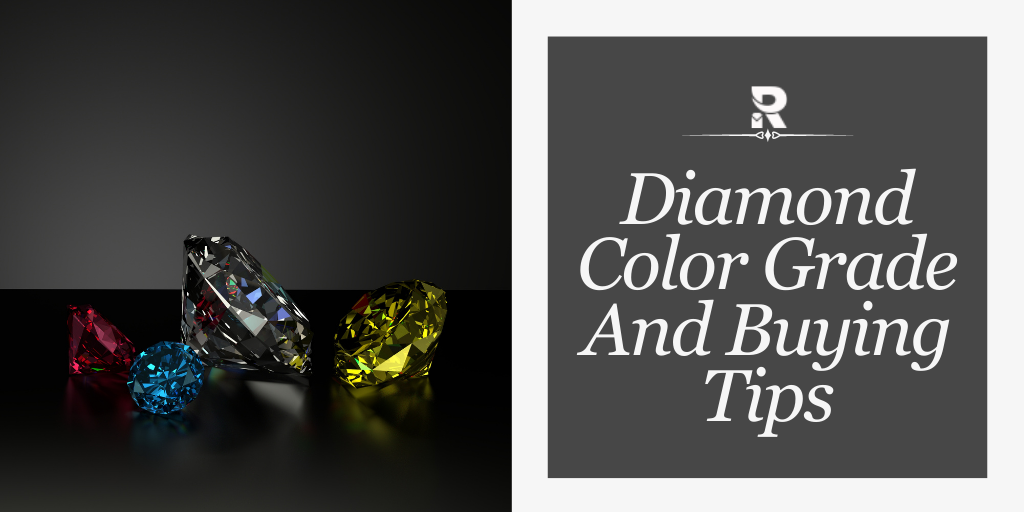
In the world of shiny gems, fancy diamonds are a unique and intriguing category that display colors that go beyond the conventional D-Z spectrum. Fancy diamonds come in a variety of colors, including blue, red, yellow, orange, green, pink, purple, brown, gray and even black, in contrast to their colorless cousins.
There are very few red diamonds in the world, making them the rarest and most costliest of the fancy diamond types. Fancy colored diamonds are graded on a unique scale that focuses on the intensity of their color rather than the presence of a yellow or brown tint.
The fancy colored diamonds color scale includes various grades, each indicating the depth and vibrancy of the diamond’s color:
Faint: Diamonds with a subtle hint of color, slightly more vivid than a Z grade white diamond.
Very Light: A step above faint, these diamonds exhibit a delicate hue.
Light: Diamonds with a discernible but still light coloration.
Fancy Light: Stepping into the realm of more vibrant colors, these diamonds showcase a noticeable yet soft hue.
Fancy Vivid: Moving towards stronger color saturation, fancy diamonds boast rich and distinct colors.
Fancy Intense: Diamonds with a deep and almost strong hue, representing a significant step up in vibrancy.
Fancy Deep, or Fancy Dark: The pinnacle of the scale, these diamonds exhibit the most intense colors. Fancy Vivid diamonds, in particular, are highly sought after for their bright and brilliant hues.
Depending on parameters including intensity, saturation, and overall brightness, the value and desirability of a given fancy colored diamond can range widely. To truly appreciate the distinctive and captivating colors of these precious jewels, it is generally suggested that they be viewed in person.
What is the Value of Colored Diamonds?
The price range for natural diamond color is quite linear with the fancy diamonds being placed at the top of the line along with colorless diamonds.
D-F color diamonds, ideal for perfectionists, require a big investment and start at $6,000 for a 1-carat gem all the way to $15,000 per carat. For value-driven decisions, the G-J range offers excellent brilliance, with prices beginning around $5,000.
Savings are noticeable, especially between G to F grades, with a 30% difference. Opting for a G or H color diamond ensures stunning beauty. Emphasizing the importance of finding a natural diamond that appears colorless without breaking the bank. Remember, it’s essential to consider all factors, from budget to preferred metal diamond shape, carat and calrity.
Famous Diamonds Worn by Celebrities
A-list celebrities, including Jennifer Lopez, Blake Lively, Beyoncé, Victoria Beckham, and Kate Middleton, grace red carpets adorned with natural diamonds that span a spectrum of color grades. Some favor the pristine brilliance of D-F color diamonds, while others embrace the warmth of the G-J range.
Each gem becomes a canvas for their unique style, creating a global statement. The allure extends beyond mere brilliance, delving into the meticulous choice of color that complements their individuality.
Amidst this, fluctuating fashion trends, often set by these celebrities, also exert a profound influence on the value of fancy diamonds.
Which Diamond Color Suits You Best?
If you want your diamond to appear as “white” as possible, the highest possible color grading is D. Under high magnification, D-grade diamonds retain their colorlessness.
However, G, H, and I color grades are a tempting option for those looking for the best value. When viewed in a ring and under normal lighting circumstances, a natural diamond of these grades appears to be colorless.
The G, H, and I diamond color grade are a good middle ground between quality and pricing. The higher grades fetch much higher prices, but don’t actually improve the product in a crucial way.
Where to Buy Natural Diamonds From?
Diamonds are a significant investment, therefore it’s important to get them from a reputable source. RRP Diamonds is the best option because of the high-quality products and services we provide in addition to the extensive selection and huge inventory we offer.
We have built a solid reputation over the past few decades, so you may feel confident in your natural diamond purchase. We have a wide variety of options available, and our dedication to ethical sourcing provides further confidence. We have a long history of satisfied customers, making it the go-to place to find an engagement ring or any other classic piece of jewelry.
Conclusion
In the scope of diamond selection, the color becomes a crucial factor, influencing both beauty and value. Whether you seek the brilliance of D color or the balanced allure of G to H, the GIA’s color scale provides a roadmap for informed decisions.
The choice ultimately hinges on personal preferences, priorities, and the delicate interplay of cut, carat, color, and clarity. When making this enduring investment, understanding the nuances ensures a diamond that resonates with individuality and stands the test of time.
FAQs
How do I choose the color of my diamond ring?
Consider your budget and personal preference; popular choices are G to H color grades for a balance of quality and value.
What is the best diamond color grade and clarity?
Optimal choices are G to H diamond color grades and VS1 to VS2 clarity for a blend of brilliance, color, and affordability.
What color diamond is best for your budget?
G to H color grades offer the best value, providing a near-colorless appearance without breaking the bank.
Should I invest in a colorless diamond?
Yes, a colourless diamond is a good investment on an emotional and monetary level. It may get a better re-sale value than the average diamond.
